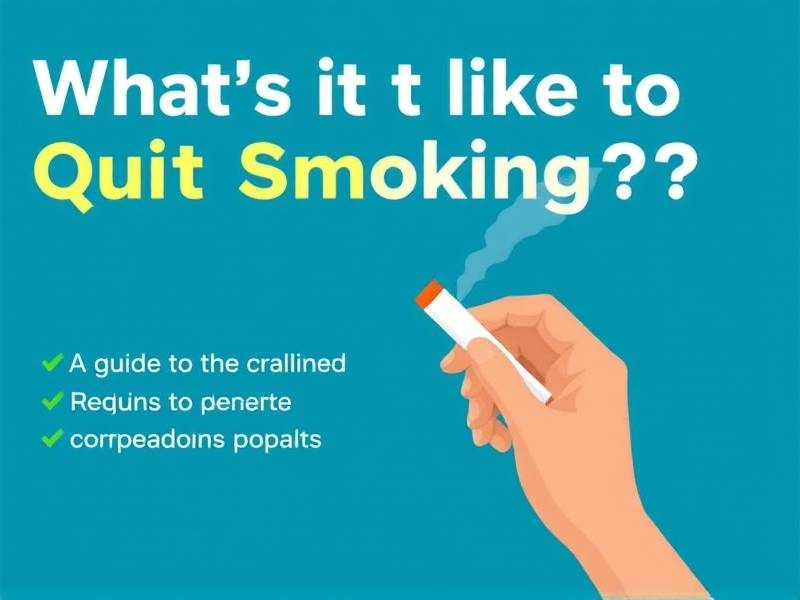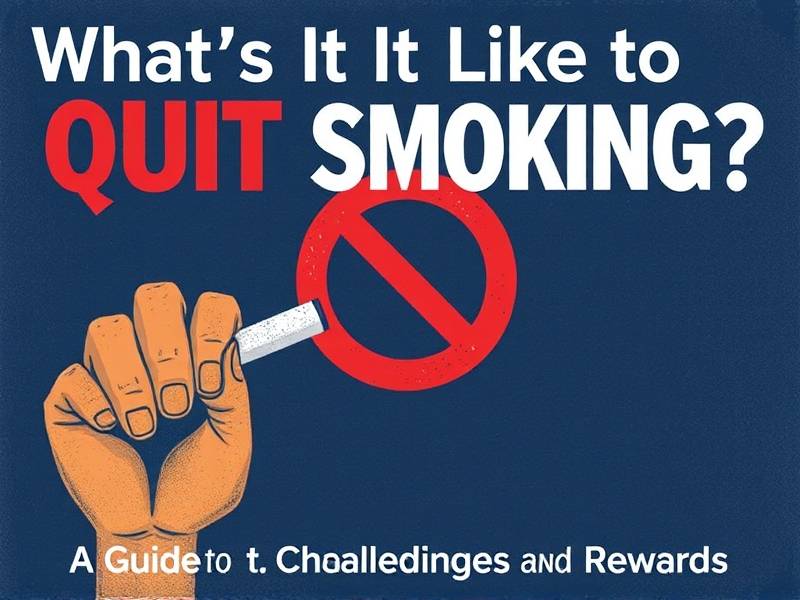What's It Like to Quit Smoking? A Guide to the Challenges and Rewards
What's It Like to Quit Smoking? A Guide to the Challenges and Rewards
Introduction: Quitting smoking is a significant decision that can lead to a healthier life. However, it is not an easy journey, as it involves overcoming physical and psychological challenges. This guide will provide you with insights into what you can expect when trying to quit smoking, along with the potential rewards that await you.
I. Understanding the Challenges

-
Physical Withdrawal When you quit smoking, your body goes through withdrawal symptoms as it adjusts to the absence of nicotine. These symptoms may include cravings, irritability, headaches, and insomnia. It's essential to recognize these challenges and prepare yourself mentally for the journey ahead.
-
Psychological Factors Smoking often becomes a habit that provides comfort or stress relief. Breaking this habit can be challenging as it requires finding alternative coping mechanisms for stress and relaxation.
-
Social Pressure Friends, family, and colleagues may not always understand your struggle to quit smoking. You may face social pressure or temptation from those who continue smoking around you.
II. Strategies for Overcoming Challenges
-
Set a Clear Goal Determine why you want to quit smoking and set a specific goal for yourself. Whether it's improving your health or saving money, having a clear purpose will keep you motivated.
-
Create a Support System Surround yourself with people who support your decision to quit smoking. This could include friends, family members, or even support groups dedicated to helping individuals overcome their addiction.
-
Use Nicotine Replacement Therapy (NRT) NRT products such as gum, patches, lozenges, or inhalers can help alleviate withdrawal symptoms by providing controlled doses of nicotine without the harmful effects of tobacco smoke.
-
Develop Coping Skills Identify alternative ways to manage stress and relaxation without turning back to smoking. Engage in activities like exercise, meditation, or hobbies that can help keep your mind occupied during cravings.
III. The Rewards of Quitting Smoking
-
Improved Health Quitting smoking significantly reduces your risk of developing various health issues such as heart disease, stroke, cancer, and respiratory problems.
-
Financial Savings The cost of cigarettes can accumulate over time. By quitting smoking, you'll save money that can be allocated towards other priorities in your life.
-
Increased Confidence and Self-Esteem Successfully quitting smoking can boost your self-esteem and confidence as you take control of your health and make positive changes in your life.

Conclusion: Quitting smoking is an arduous journey filled with challenges but also promising rewards. By understanding these challenges and employing effective strategies for overcoming them, you'll be well on your way to a healthier life without cigarettes.
